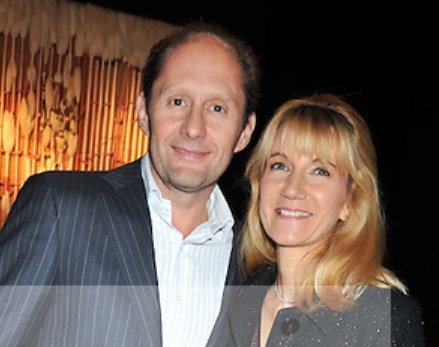Committed to Equal Opportunities in Africa
Isabelle and Bertrand Schwab graduated from HEC Paris in 1987 and have been generous patrons of the HEC Foundation since 2006. This year, they made a commitment in favor of Equal Opportunities for Africa by making a significant donation to the HEC Foundation and creating a fund initially dedicated to this project, the ‘Isabelle and Bertrand Schwab Social Initiative Fund’.

Through the Isabelle and Bertrand Schwab Social Initiative Fund, they aim to support aid programs for gifted students in various parts of the world. The first investment will support the PACT Afrique project [Aid Program for African Talent].
Educating and training young Africans is crucial to the successful, sustainable transformation of the continent. The Equal Opportunities for Africa project aims to offer the finest African talent access to HEC. The program is built around 4 key points:
- Inform students of the training programs offered by HEC and terms of admission
- Identify the best talents
- Implement a support program
- Provide financial aid
We are extremely grateful to Isabelle and Bertrand Schwab for their loyalty, their generosity and the creation of this new fund which will kick-start this wonderful project for Equal Opportunities for Africa.
If you would also like to support the Equal Opportunities for Africa project, please contact the Foundation team by emai (fondation@hec.fr) or telephone (+33 (0)1 39 67 94 17) or make a donation via our online platform here.
How will your donation contribute?
The aim of the Equal Opportunities for Africa project is to finance 3 regional centers.
Each regional center requires a budget of €200,000 per year to cover the recruitment of a field project head, the implementation of a support program (English lessons, preparation sessions for the TAGE, MAGE and GMAT, and preparation for the oral interviews, etc.) in addition to study grants for students who have passed the admissions process.
About the Equal Opportunities for Africa program:
Obstacles to the recruitment of students at HEC include the tuition fees and admission procedures (in particular the GMAT and English level tests). There are also mental barriers, notably self-censorship by the students: ‘I wouldn’t even consider applying for HEC, I’ll never make the grade’.
To remove these hurdles, we are developing an equal opportunities program for African students and our aim is to achieve, over 5 years, the integration of 20 students from Sub-Saharan and Southern Africa in 1- or 2-year Grande Ecole Master’s cycles (i.e. to double the current admissions rate).
The program should enable a significant rise in the number of applicants for higher education meeting the requirement levels of HEC.